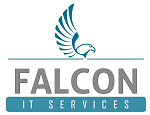All data that is created, transmitted, or received by an organization’s computer systems is considered to be the property of the organization. This includes data that is stored on the organization’s electronic assets, such as computers, servers, and other devices.
It is important for employees to be aware that any personal data they may have stored on the organization’s electronic assets may be accessed or disclosed in certain circumstances, such as during a legal dispute or in response to a legal discovery request. This is because the organization has a right to access and use its own data, including personal data that may be stored on its electronic assets.
It is also important for employees to understand that their use of the organization’s computer systems and electronic assets is subject to the organization’s policies and guidelines, and that any inappropriate or unauthorized use may be subject to disciplinary action.
It is important for organizations to be aware of their legal obligations and responsibilities when it comes to data ownership and protection, and to have policies and procedures in place to ensure that they are in compliance with relevant laws and regulations.
